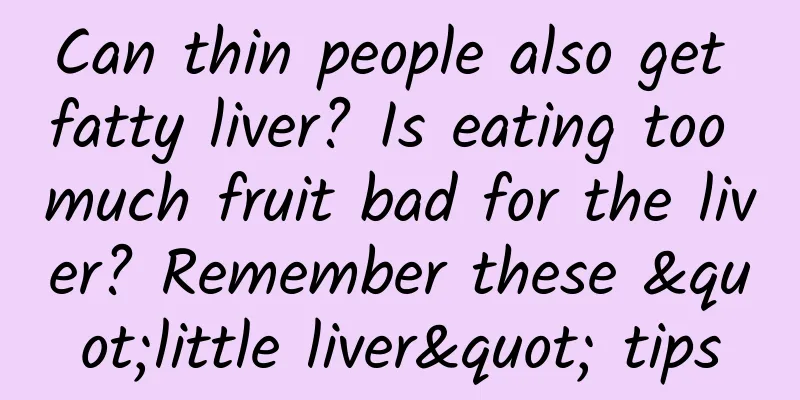What should I do if wild ginseng is moldy?

|
We all know that wild ginseng is a very precious thing. Eating it is very nourishing to the body and has great benefits. However, many people don’t know what to do if ginseng becomes moldy, and don’t know how to deal with it after it becomes moldy. It’s not completely inedible after wild ginseng becomes moldy. It depends on how you deal with it. So let’s take a look at what to do if wild ginseng becomes moldy. I hope everyone can pay attention to this. Ginseng is a precious Chinese medicine. According to its source and processing methods, it can be roughly divided into red ginseng, sugar ginseng, raw sun-dried ginseng, Korean ginseng, American ginseng, etc. Because ginseng contains nutrients such as sugars, amino acids, vitamins, inorganic salts, etc., it is very easy to get moldy and insect-eaten, which will affect its medicinal and clinical efficacy, so it is necessary to store it properly. The efficacy and function of ginseng 1. For first aid Large doses of ginseng (15-50 grams) can be decocted or stewed, or 2-4 ml of ginseng injection (containing 0.57 grams of the raw drug per ml) can be injected intramuscularly or intravenously. It can be used for first aid of cardiogenic shock or other patients who are extremely critical at the moment. The combination of ginseng and aconite can cure yang loss and collapse. 2. Treat cardiovascular diseases Ginseng has certain therapeutic effects on hypertension, myocardial malnutrition, coronary artery sclerosis, angina pectoris, etc., and can alleviate various symptoms. Ginseng has a regulating effect on abnormal blood pressure, or it is believed that different doses can have different effects: small doses can increase blood pressure, while large doses can lower blood pressure. The usual daily dose for adults is 0.2-3 qian. Ginseng extract (each milliliter is equal to 1 gram of raw medicine), take 20-40 drops each time, 2-3 times a day. Ginseng tincture (content 10%), 5 ml each time, 2-3 times a day. Ginseng powder, 3-6 fen each time, 2-3 times a day. 3. For stomach and liver diseases For patients with chronic gastritis accompanied by achlorhydria or low gastric acid, taking ginseng can increase appetite and alleviate or eliminate symptoms, but it has no obvious effect on gastric juice secretion and gastric juice acidity. There are also reports that ginseng can eliminate stomach pain, increase appetite, normalize bowel movements, and increase the total acidity of gastric juice in patients with chronic gastritis. For acute infectious hepatitis, under certain treatment conditions, taking ginseng seems to have a certain positive significance in preventing it from turning into chronic hepatitis. 4. Treat diabetes Ginseng can improve the general condition of diabetics, but does not change the degree of high blood sugar. It is said that ginseng can reduce urine sugar and blood sugar by 40-50 mg% in patients with mild diabetes, and the effect can be maintained for more than 2 weeks after stopping the medication. Although the effect of taking ginseng in lowering blood sugar is not obvious for moderate diabetics, most of their overall conditions are improved, such as the disappearance or alleviation of symptoms such as thirst. Some patients can reduce the amount of insulin they need after taking ginseng. What to do if ginseng is moldy? Throw it away. It’s such a simple question. Don't make it so complicated. Do you think you can eat it if you just wash it and don't see any mold spots? You are totally wrong. Washing it does not affect the fact that it has become moldy. Don't try to cover your ears and steal the bell, thinking that what you can't see didn't happen. We should be a materialist. The above is an introduction to what to do if the wild ginseng is moldy. In fact, if the mold has not completely penetrated into it, you can eat it after cutting the wild ginseng and washing off the mold. However, if it is very moldy, it cannot be eaten. Eating moldy things is always bad for your health. If you see moldy ginseng at home, throw it away in time. |
<<: What is Cordyceps sinensis?
>>: What should I do if Panax notoginseng flowers are moldy?
Recommend
The efficacy and function of the pupa
Zombie pupa is a commonly used medicinal material...
Scientists let 10,000 worms share a pizza. The reason behind this is heartwarming?
Written by: Qi Zai Layout: Bai Ruobing Excuse me,...
The efficacy and function of water banyan root
As a traditional Chinese medicine, the root of th...
Drinking milk like this is equivalent to "wasting it", which one does it apply to you?
This article was reviewed by Pa Li Ze, chief phys...
Scientists have discovered another habitable planet, which is expected to become the next "Earth"?
Produced by: Science Popularization China Author:...
The efficacy and function of earth spirit root
Do you know about earth spirit root? It is a comm...
14 of them appear at once? The "bugs" are resurrected, be careful not to be sprayed by the "stinky fart bugs"...
As spring arrives and flowers bloom, all kinds of...
"I was infected with Omicron in South Africa": There are 3 symptoms!
The impact of the Omicron strain on South Africa ...
What are the effects of traditional Chinese medicine Guangmuxiang
Traditional Chinese medicine is relatively common...
The efficacy and function of camphor pear
Camphor pear fruit is a famous traditional common...
The refrigerator is cold at the bottom and hot at the top? Many people misunderstand it
Have you ever noticed that food in different area...
Can drinking capacity be developed through training? Is it easier to get drunk if you mix alcohol? The truth is…
Expert: Dr. Tian Jing, attending physician, South...
Black wolfberry soaking water effect
There are many people who choose to soak red wolf...
Tiangong already has Hall thrusters, so why is it necessary to transport chemical fuel up there?
At 14:22:22 on July 24, 2022, the Long March 5B Y...
Can we predict adult height by cracking the "code" of bone age?
Author: Li Kai, attending physician, Beijing Jish...









